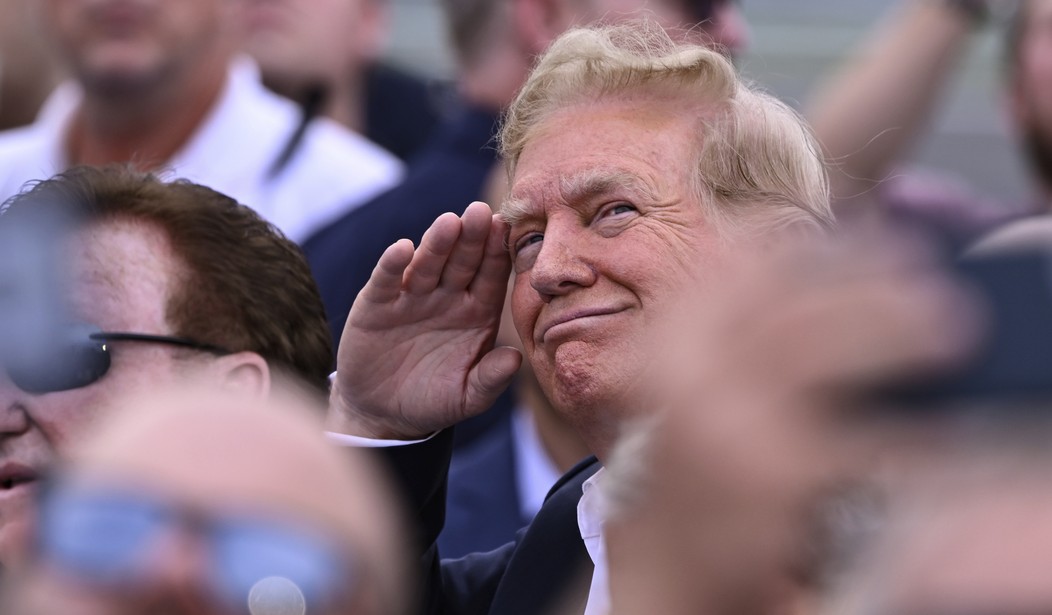While many leftists snickered at President Trump’s recent, large rallies in New Jersey and the Bronx as wasted effort, as well as his recent appearance in Minnesota, history shows that the effort in the Garden and Empire States may turn out to have a large payoff for the former, and perhaps once again, president.
Vice President Richard Nixon spread himself too thin in the 1960 presidential election against John F. Kennedy. In his quest to visit all 50 states in the Union, the Vice President did not focus enough attention on the swing states at hand. Further, Mr. Nixon had a period of illness during a critical timeframe of the election, just before the debates which caused him to be away from the campaign trail as well as come across poorly on television during the first debate against JFK.
However, for President Trump, comparisons with the former Vice President appear not to be valid. President Trump has not had a period of illness during the election and, to the contrary, has showed great vigor under the tremendous strain of having to be in court, in a case brought by D.A. Alvin Bragg, as opposed to on the campaign trail. Further, the former president seems strengthened by the trial so that when he has been able to campaign, he gains even greater enthusiasm from his supporters. This enthusiasm stems not only from supporters agreeing with much, or all, of the former president’s policy positions, but also due to being deeply affronted that they cannot see him even more on the campaign trail due to Bragg’s pursuit of him.
While Mr. Nixon was generally well respected throughout his vice presidency, he was not met with the massive crowds that accompanied President Trump in New Jersey and New York. The former Vice President did gain massive crowds in his successful 1968 presidential campaign, an election much closer in size, scope and significance to 2024.
Recommended
A better comparison for President Trump may be with Mr. Nixon’s then boss, President Eisenhower. During his first (and successful) race for the presidency in 1952, General Eisenhower was repeatedly told by his advisors not to campaign in what was then the Solid South, which Democrats had safely held since the Civil War. Only once since Reconstruction, in 1928, had the Southern states of Texas, Oklahoma, Tennessee, Florida and Virginia voted for a Republican, until Eisenhower came along. Ignoring the advice of his advisors, the general said that he would go to the Southern States and campaign, alone if necessary.
Eisenhower went and while he did not win every Southern State, he won all of the above named states and massive crowds turned out to see the General and it became apparent that his campaign was a growing, national movement. In his 1956 re-election campaign, Eisenhower carried even more Southern and Border states to include Louisiana despite him being a Lincoln Republican and a relatively strong supporter of Civil Rights.
Eisenhower went to areas where his party had not traditionally won as he said, “The man in the White House…should think of himself as president of all the people. Even though a party’s nominee in a national election might lose every state in a major geographical region, he should not neglect the opportunity…to learn more about the problems and attitudes of that region and to make his own ideas and proposals affecting the nation known there.” It paid off as the general did not come across as a politician.
President Trump has gone to Harlem, the Bronx, Minnesota and New Jersey, and has met much support among traditional, and in many cases dwindling, Democrat constituencies. In any election, a day is like a thousand years and a thousand years is like a day. Anything can happen and candidates should never forget their base. President Trump might not carry New Jersey or New York, but in the spirit of Eisenhower, having tens of thousands of people show up in a traditionally blue state to hear him speak may spell deep trouble for the Biden campaign.
*Views expressed in this article are those of the author and not any government agency.

























Join the conversation as a VIP Member